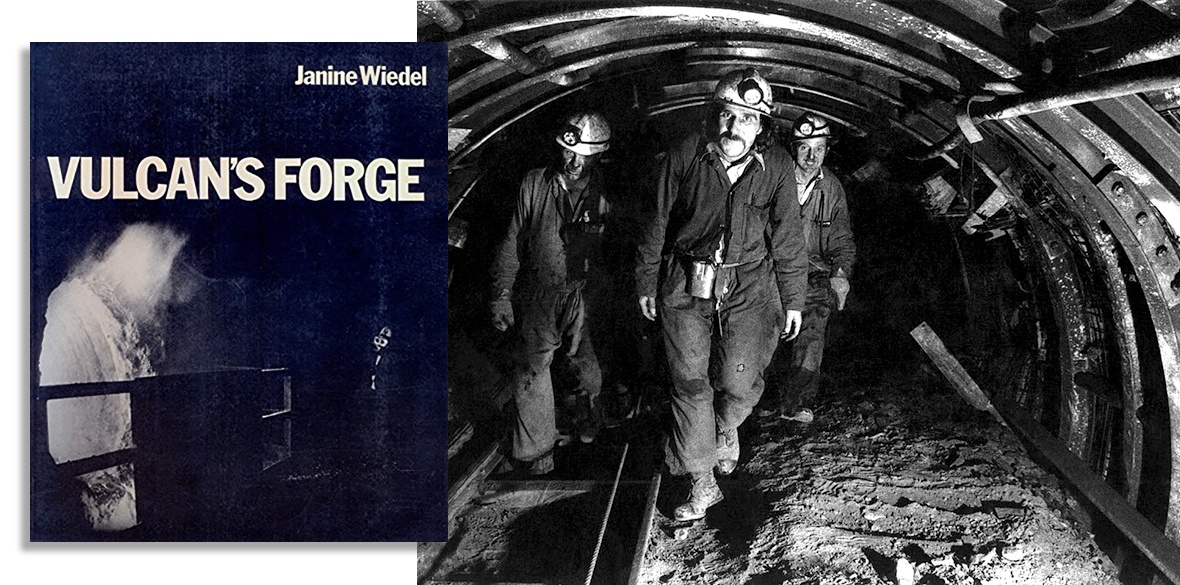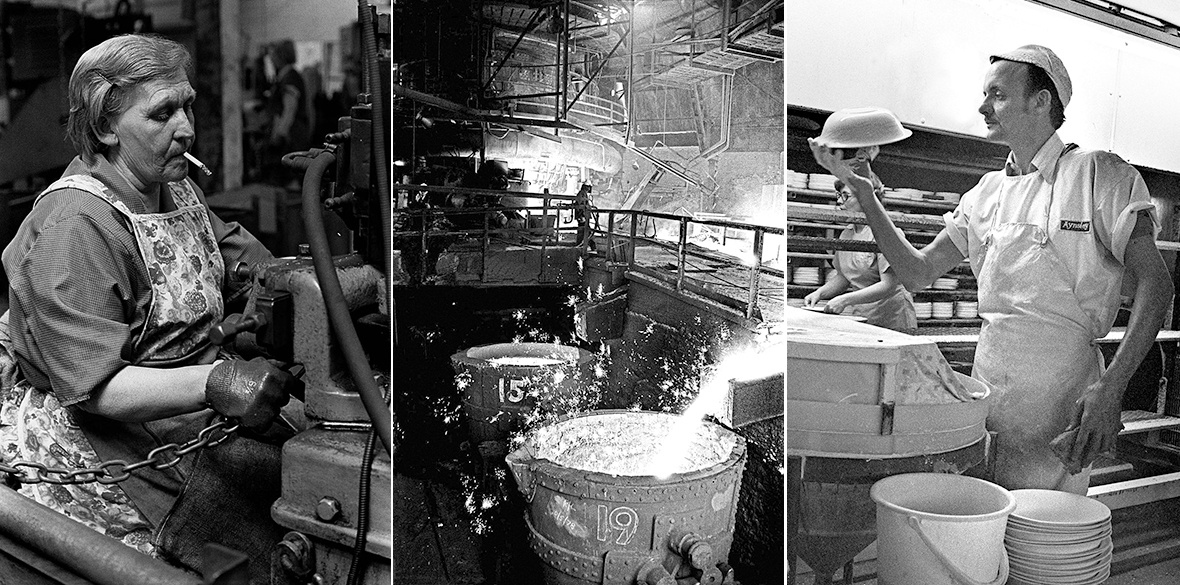This is the last article you can read this month
You can read more article this month
You can read more articles this month
Sorry your limit is up for this month
Reset on:
Please help support the Morning Star by subscribing here
Vulcan’s Forge, by Janine Wiedel
Bluecoat Press, £40
IN 1977, Janine Wiedel set out in her VW campervan to photograph industry in England’s West Midlands – once the heart of the Industrial Revolution. A region that was home to thousands of businesses – from iron and steelworks to engineering workshops and potteries, jewellers and coal mines – but then already in steep decline. Underinvestment in both premises and machinery over many decades, combined with government indifference, had left the area depressed and its industries in a terminal state.
Vulcan’s Forge is a beautiful monograph documenting the area and its people in over 150 pages of tri-tone printed photographs. It is divided into sections on each industry — The Forge, Jewellery Quarter, The Potteries and Chain-making — with extended captions and background information on each location.
This project, which took Wiedel two years to complete, was begun when she won a bursary from the West Midlands Arts Association, the first to be given to a photographer. Before the West Midlands project, she had already published two books and held exhibitions, one on Irish tinkers and the other on the Inuit people of Baffin Island.
All three subjects represent marginalised communities.
Her images of West Midlands industrial workers are all shot in stark black and white, bringing out the chiaroscuro qualities of those “dark satanic mills.” And in a way they do recall Blake’s era rather than our own. The grit and grime of the workshops, and the soot and grease coated bodies and faces of those who worked there are tangible.
These denizens appear to be integral appendages of the machinery and of the premises in which they labour; beavering away like troglodytes who rarely get to see the light of day, their shadowy figures illuminated only by a few shafts of light from an open door or the few soot-encrusted windows. It is hard to imagine that these men and women were working in such conditions only 50-odd years ago.
The Midlands presented quite a different problem from her previous subjects, containing a much wider range of people and activities, spread over a large area. In order to cover as much as possible, Wiedel divided the area into sections and worked through them systematically, with the intention of drawing the parts together into a representative whole.
She travelled and lived in her VW campervan which gave her freedom of movement and enabled her to return to her London darkroom occasionally to print and sort out work in progress. She began in Birmingham, finding the city difficult to navigate at first. Having arrived at Aston however, itself divided now by a busy main road to Spaghetti Junction, she found a section on which she could concentrate and get to know relatively well.
Her method of working was to take initial pictures and then gain access to the workshops and talk to the people working there. By also living on site in her van, she was able to get to know the individuals before she did any concentrated shooting. She was welcomed into the steel mills, went down coal mines and into chain workshops, as well as into smaller engineering firms.
The advantage of such a monograph as Vulcan’s Forge is that it provides the viewer with an in-depth but also comprehensive picture of industrial working conditions in that part of the West Midlands during the late ’70s. The workers she portrayed appear relaxed and at ease with the photographer, even though she maintained the role of dispassionate observer.
Almost all the images here are taken inside the workplaces and numbers of them are simple close-up portraits, but one or two have been taken outside: of eerily quiet canals that transect this industrial landscape and of miners’ cottages, crammed up unlovingly around a pithead.
Wiedel’s monograph combines the qualities of first-class photography with powerful content which endow it with a life of its own outside any immediate local impact.













